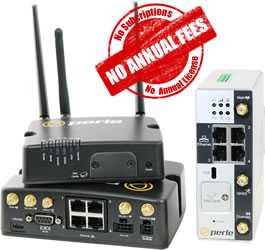
5 Benefits of OCI Containers that Boost Network Management
By Julie McDanielVice President Marketing
May 13, 2024
Docker, the popular containerization platform, has revolutionized how we create, deploy, run, and manage applications. It provides a lightweight and portable containerization solution that allows developers to package applications easily, along with all the necessary dependencies, configurations, and settings, and run them seamlessly across different environments and host systems. But did you know that Docker can also enhance your network management capabilities? Here are five ways Docker can help you simplify network management tasks to achieve a more efficient, scalable, and secure infrastructure.
1. OCI Containers are more efficient than Virtual Machines (VMs)
Traditional virtualization using virtual machines (VMs) has many advantages - but also some limitations. Deploying VMs necessitates considerable resources to operate numerous operating systems and applications on identical hardware, which can be sluggish, intricate, and expensive to administer. Docker takes a different approach to virtualization, using lightweight containers that encapsulate all the dependencies needed to run an application. Containers are isolated from each other and the host system but share the same kernel and libraries, which makes them much more efficient, portable, and easy to deploy and manage. With Docker, you can run multiple containers on a single machine or across multiple hosts without worrying about compatibility or resource allocation issues.
2. Fast Deployment
Deploying hardware or software can be laborious and error-prone, mainly when dealing with diverse environments, dependencies, and configurations. Docker can help you streamline this process by providing a fast and consistent way to package and deploy your applications. You can create Docker images that contain all the necessary files, libraries, and settings for your application and then use these images to create containers that can be run anywhere, anytime, without any manual intervention. This allows you to deploy new resources in seconds, not hours, and to scale up or down your applications on-demand based on your actual needs.
3. Improved Disaster Recovery
Disaster recovery is a critical aspect of network management but can also be a complex and costly challenge. Traditional approaches to disaster recovery often involve dedicated sites or servers that are idle most of the time but need to be ready to take over in case of a failure or outage. This can result in high maintenance and operational costs and limited scalability and flexibility. Docker can help you improve your disaster recovery strategy by allowing you to create and manage containers that contain your applications, such as backup, monitoring, and testing tools, to ensure their availability and integrity. With Docker, you can easily replicate your entire application stack across multiple hosts or regions and quickly spin up new containers without manual intervention or downtime.
4. Simplified Network Configuration
With Docker, you can define and manage your network settings declaratively using simple and consistent commands using a RESTful API. This allows you to automate the creation of network topologies such as load balancers, firewalls, and other network components and replicate them across different environments easily.
5. Enhanced Network Security
Docker can improve your network security posture by isolating and protecting your applications and services from external threats and internal vulnerabilities. By running each container in its own sandboxed environment, Docker can prevent malware, exploits, and data breaches from spreading across your network and can enforce access control, auditing, and compliance policies. Furthermore, Docker provides diverse security-related capabilities, including image scanning, secrets management, network encryption, and runtime protections. These features can assist you in reducing risks and adhering to industry standards and regulations.
In summary, Docker is not just a tool for application development and deployment but also a powerful ally for network management. By leveraging Docker's networking communication capabilities, you can simplify your network configuration, scale your network dynamically, and enhance your network security while reducing complexity, costs, and risks. With Docker for network management, network administrators can focus on delivering value to their organization rather than spending time on complex and time-consuming network management tasks.
Perle IRG Cellular Routers offer native support for OCI Containers, which allows users to optimize their edge computing processing capabilities by deploying applications custom-tailored to unique or evolving use cases. One of the key advantages of this solution is the ability to deploy custom third-party applications in a container that can perform intelligent actions and run tasks closer to the source without interfering with the core functionality of the 4G LTE or 5G Router. This results in seamless integration between the IRG Cellular Router and the user's overall solution to improve performance, scalability, and security. Learn more about Perle's Native OCI Container Support.


